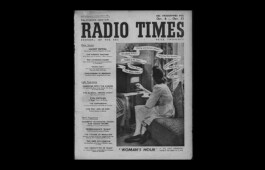
THINGS YOU MIGHT HEAR BETWEEN 10:00 – 10:30AM
Woman’s Hour

BBC Pips (1977-present)
Voiceline ident
Woman’s Hour radio feature created for The Voiceline exploring how women's voices have changed BBC featuring featuring voices of women in broadcasting from BBC archive, introduced by Neil Nunes
In the early days of the BBC, women were largely excluded from on-air roles, with the few exceptions being limited to small, non-controversial topics such as cooking and home economics. This began to change in the 1950s and 60s, when the BBC began to hire more women as newsreaders and reporters. However, it wasn't until the 1970s and 80s that women's voices began to be heard more regularly and in a wider range of roles on BBC radio and television. Today, women's voices are an integral part of BBC broadcasting, representing a diverse range of perspectives and experiences.

THINGS YOU MIGHT HEAR BETWEEN 10:00 – 10:30AM
Woman’s Hour

BBC Pips (1977-present)
Voiceline ident
Woman’s Hour radio feature created for The Voiceline exploring how women's voices have changed BBC featuring featuring voices of women in broadcasting from BBC archive, introduced by Neil Nunes
In the early days of the BBC, women were largely excluded from on-air roles, with the few exceptions being limited to small, non-controversial topics such as cooking and home economics. This began to change in the 1950s and 60s, when the BBC began to hire more women as newsreaders and reporters. However, it wasn't until the 1970s and 80s that women's voices began to be heard more regularly and in a wider range of roles on BBC radio and television. Today, women's voices are an integral part of BBC broadcasting, representing a diverse range of perspectives and experiences.